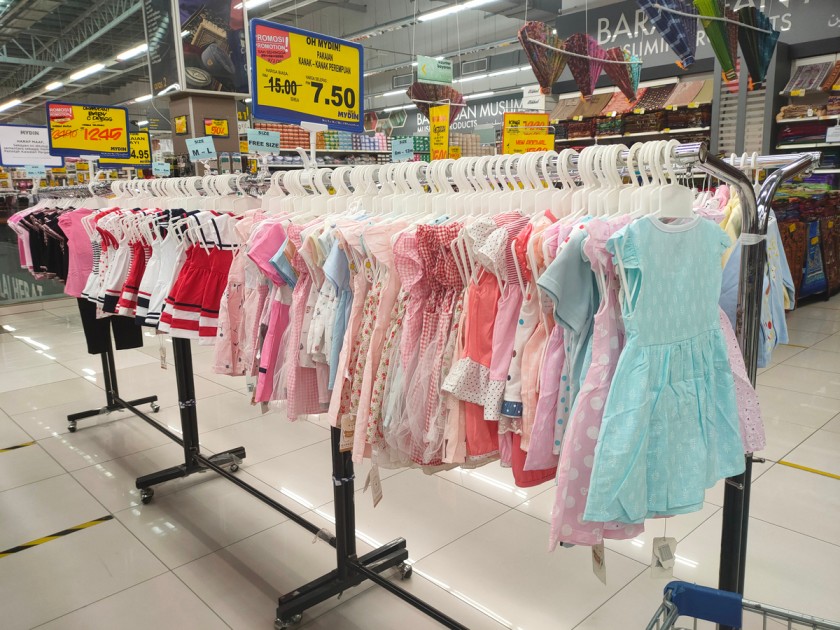The Importance of Effective Stock Management Systems in Retail Fashions



Stock management is an important part of a company's success, but many small businesses don't handle it well. All stocks (stock in hand) are included in-stock inventory, which comprises both stock goods on shop shelves and overstocks in warehousing. Another reason for lower earnings and client loss might be a lack of stock management arrangements.
Some clothing retailers have insufficient inventory, making them unable to exceed client expectations by offering adequate items. This frequently pushes clients away, sometimes for better and sometimes for worse. As a result, inventory management should be treated carefully by all those in retail, including grocery stores, supermarkets, minimarkets, and supermarkets.
What is a stock management system for clothing retail?
A retail management system (RMS) is a platform that incorporates various valuable features to assist in the operation of a retail store or network, such as stock management, point of sale (POS), and customer relationship management (CRM).
Some platforms are also mobile-friendly, allowing these chores to be completed anywhere in the business. Users can verify that all of your systems exchange information and perform tasks effectively together on one platform. Some systems will even provide marketing and analytics tools to aid in the growth of your company.
Why should fashion brands use a retail management system?
Fashion retail is being transformed by in-store, internet, and mobile technologies that enable customization, personalization, analytics, and speedier product discovery. Fashion businesses and retail clothing are using technology to gain and keep customers in a tech-savvy way. To stay competitive and address declining profit margins, retailers are increasingly turning to technology. Customer-facing operations like targeted marketing, customer interaction, ease of product assortment with personalization, promotional material, loyalty incentives, and customer relationship management are all being transformed by technology.
Importance of stock management systems in clothing retail

Meeting variations in demand in the premium, high street, off-the-shelf, or custom-fit categories based on seasonal fashions is difficult for apparel retailers. Fashion retailers must ensure the fastest and most reliable delivery of items from suppliers (factories) to warehouses and factories in the trend-conscious retail clothing industry.
Warehouse operation
Receiving things, categorizing and maintaining stock, and delivering commodities are all part of the warehouse process flow. What is the purpose of laying up the warehouse layout? Many individuals are perplexed as to why this is essential. It all boils down to having sufficient storage capacity. As a result, investing in dependable software as part of your stock tracking process phases is critical. The warehouse layout (Planogram) can be organized to make operations more efficient. When receiving items in the warehouse, the planogram provides a clear picture. It also allows you to keep track of the warehousing and packaging for shipments, as well as the right shelving to make the most of the available space.
Visual merchandising
Targeted and precise product merchandising, from window presentations to the whole floor layout, may promote pleasant consumer experiences in fashion retail. A retail display may boost sales by up to 540 percent, as per the Retail Hardware Research Foundation's Russel R Mueller report. Because it encompasses advertising and promotion methods, the art of visual merchandising is a science. It takes the correct recipe to make it work. This, however, does not have to be done manually. With the correct software, you can arrange your merchandise. You may also pick which things to put on the market. If done correctly, discounts can drive customers to buy more.
Detecting product flaws
Product returns cost manufacturers and distributors more than $100 billion every year, equating to a 3.8 percent loss on average. The last thing you want to do is stock your retail businesses with faulty goods. You should nip this in the bud by sifting through your items at the warehouse, saving your customers from disappointment, and avoiding the cost of product returns. The correct tool will assist you in documenting your results and identifying solutions to decrease the incidence of damaged items, which reduces your company's revenue. Otherwise, it might happen yet again.
Finding items to sell at a discount
Because their trend-driven products may soon go out of fashion, many retail clothing companies struggle with seasonal inventories. Keeping track of your stock investments seasonally, on the other hand, might help you avoid losing money. By using the formula given by your warehouse management software suite while accounting for products, you may reduce mistakes. An organized strategy has several advantages, including deciding which clothes products to put on sale while still making a profit.
Retail stores operation
Store operations are another significant part of the retail workflow operating process. This includes all of the tasks necessary to keep the shop functioning smoothly. The activities of warehouses and stores are tightly intertwined with clothing retail. In other words, bad warehouse operations might have a negative impact on sales. You can also manage your retail operations more effectively with suitable software solutions.
Managing retail display

Setting down floral motifs and bright-colored clothing in the fall is bound to raise some eyes, right? After all, the season necessitates a neutral and warm color scheme. Patterns like this may be found in spring and summer fashion collections. Customers make purchases based on what they see. This is why it's critical to understand what consumers demand. Knowing when people are most likely to desire something can also help you sell more. Having this information provides you a leg up on the competition when it comes to deciding what to present and when. Another important factor to consider is the number of possibilities available. Customers don't understand what they want until they experience it when it comes to retail clothing. So take the initiative and close the gap by providing a comprehensive selection of available trendy goods.
Enhancing customer service
Customer service is an essential component of retail workflow operations. Customers will value the common civility, politeness, and speed with which they are served. Companies frequently follow procedures, and personnel must follow specific scripts to avoid staff and customer conflicts. It's one thing to provide customer service guides to personnel, but it's far better to have a well-functioning client retail system. Clothing retail representatives can acquire real-time information on sustaining quality standards both inside the shop and throughout your stores using a management system that includes checklists, photo reports, and video analytics. You may also monitor and assess compliance with organizational standards if you use the correct method.
Checking in-store environment and store cleanliness
As a retailer, you must appeal to the instincts of your customers to persuade them to purchase. This may be achieved by creating the ideal shopping atmosphere for them. To begin, make sure your warehouse operations are up to par. If there is an excessive amount of inventory of items, the funds spent will inevitably be considerable, as will the increase in some expenses, such as the danger of damage to the goods. Then, from the music to the perfume, create an inviting ambiance in your business. Every retail establishment should be clean and well-organized. Maintaining a daily shop management checklist guarantees that everything has been handled.
Conclusion
Business owners can benefit from retail management systems since they can provide different services in one location, easing the process of managing a store. Managing and purchasing merchandise for clothing retail, checking out clients, scheduling personnel shifts, and keeping a record of funds are all simple chores that may be performed with one solution. As a result, the merchandise inventory represents both the number of nice things on display and those that are currently in storage. Connect with Fashinza to source clothing and simplify the manufacturing process for your fashion brand.



















